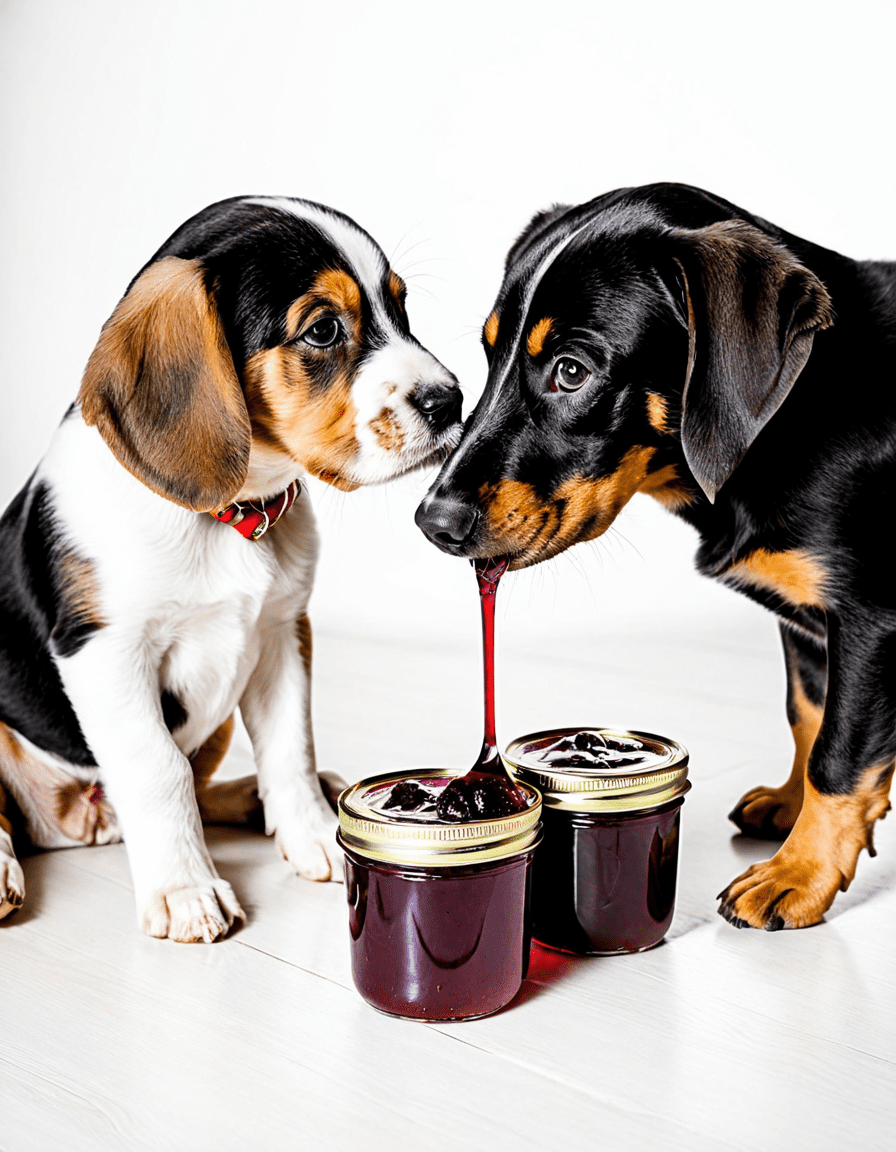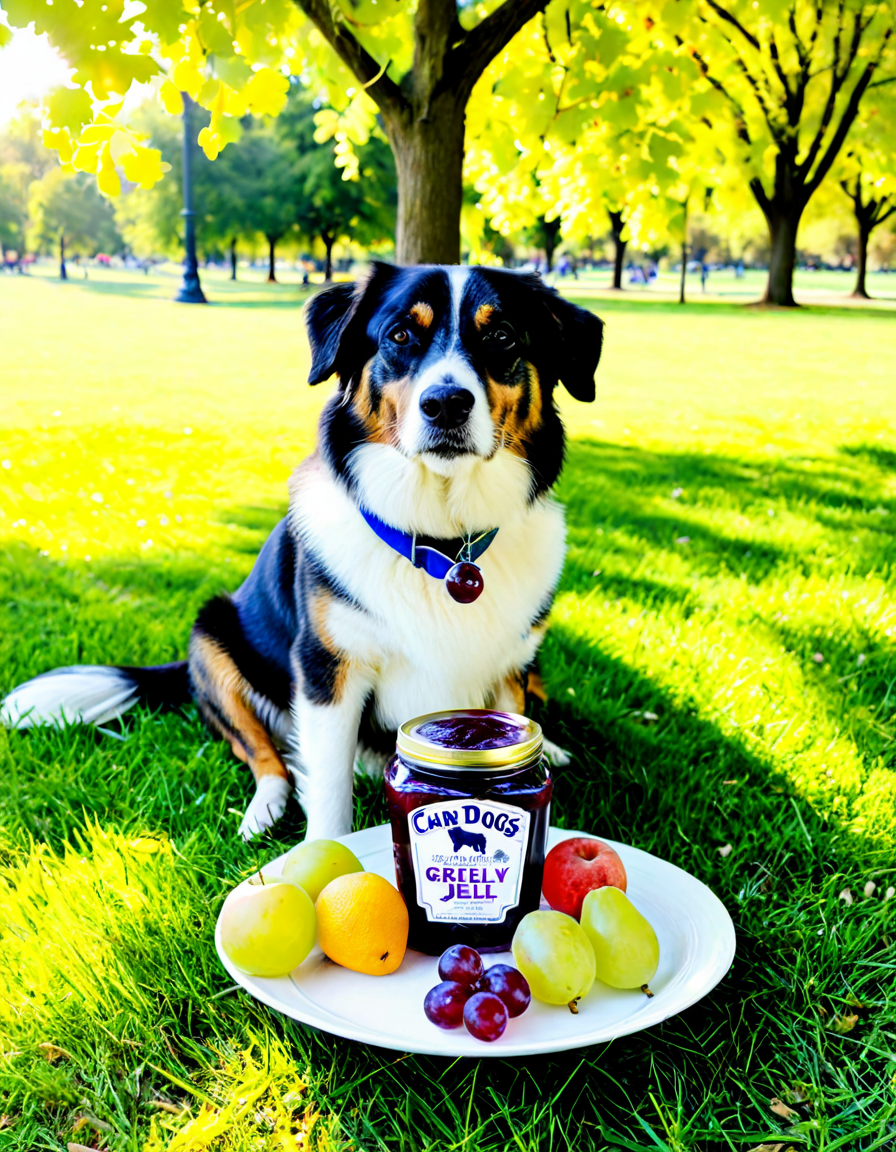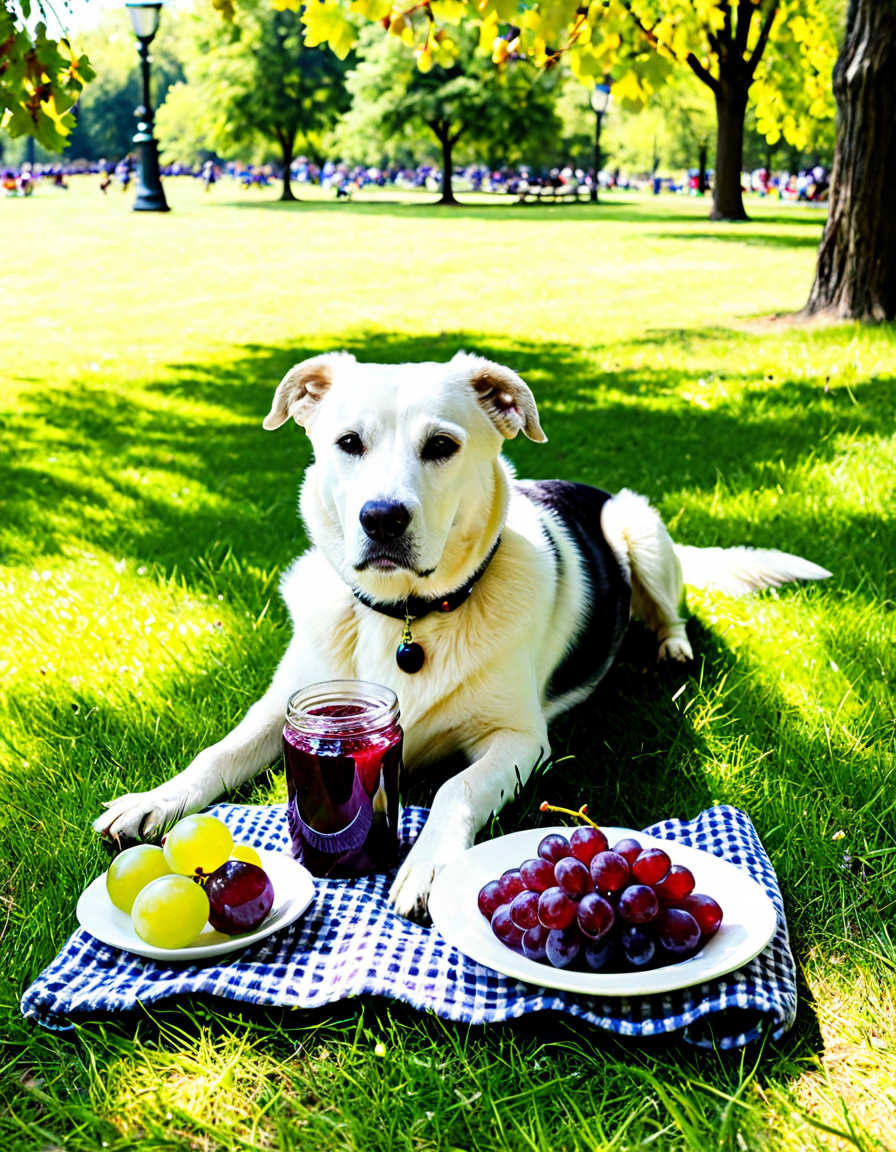Dog owners often find themselves questioning which human foods are safe for their furry companions. One popular product that sparks curiosity is grape jelly. This article aims to answer the pressing question: can dogs have grape jelly? We’ll explore the composition of grape jelly, potential health risks, and alternative sweet treats for pets.

1. The Ingredients of Grape Jelly and Their Effects
Before diving into whether dogs can consume grape jelly, it’s critical to understand what it contains. Popular brands like Welch’s Grape Jelly and Smucker’s Grapelicious Jelly include the following ingredients:
Taking these points into account, it becomes evident that the primary ingredient, grapes, poses significant health risks to dogs.

2. Health Risks Associated with Grape Jelly
When asking can dogs have grape jelly, it’s essential to recognize the inherent dangers associated with its ingredients:
Toxicity of Grapes
The FDA has confirmed that grapes and raisins are toxic to dogs. The consumption of even small amounts can lead to serious health risks, including renal failure. Symptoms may take hours or even days to appear, but they can be life-threatening.
Sugar and Obesity
High sugar consumption is another red flag. Grape jelly packs about 13 grams of sugar per tablespoon, making it a sugary choice that is unsuitable for our furry friends. Excessive sugar can lead to obesity, which can develop into diabetes or other health complications.
Allergic Reactions and Stomach Issues
Some dogs may also have sensitivities to food additives found in jelly. These additives can cause gastrointestinal upset, leading to symptoms such as vomiting, diarrhea, and irritation. Nobody wants to see their pet uncomfortable!
3. Safe Alternatives to Grape Jelly
If you’re searching for ways to treat your dog with something that feels indulgent, there are safe alternatives to grape jelly that are delicious and dog-friendly:
Natural Fruit Purees
Homemade fruit purees can be a healthy substitute. Strawberry or blueberry puree made without added sugar poses no risks to dogs and provides essential vitamins and antioxidants.
Peanut Butter
Brands like Jif Natural or Crazy Richard’s 100% Peanut Butter work wonders for dog treats. Just make sure there’s no xylitol in the mix, as this is toxic to dogs. Spread it on dog biscuits or mix it into their food.
Pumpkin Puree
Plain canned pumpkin (not pumpkin pie filling) is another great alternative. It’s safe, nutritious, and dogs love it! Plus, it can assist in their digestive health, making it a win-win.
4. Understanding Dog Nutrition and Treats Responsibly
Navigating canine nutrition requires vigilance and a solid grasp of what healthy food means for pets. Here are some tips to keep in mind:
Read Labels Carefully
Always scrutinize ingredient lists when purchasing treats. Some items might sneak in harmful ingredients like grapes. Look for natural, dog-specific brands that prioritize health to make informed choices.
Consult Your Vet
If you’re ever unsure, consulting with a veterinarian can provide personalized dietary recommendations. Your vet can help you choose the safest and most nutritious options for your furry friend.
Wrapping It Up: The Sweet Truth about Grape Jelly and Your Dog
So, can dogs have grape jelly? The simple answer is no—grape jelly is an unsafe treat for dogs due to its toxic grape content and high sugar levels. Instead of reaching for jelly, consider healthy alternatives like homemade natural fruit purees, peanut butter, or pumpkin puree. Engaging your dog’s palate with safe options can create a rewarding experience that keeps their health at the forefront. Always prioritize your pet’s safety when sharing food, and remember that treats should be beneficial and enjoyed in moderation!
For more resources on dog safety with various foods, check out our articles on can Dogs have apple sauce and can Dogs have banana bread. With proper knowledge and care, you can ensure that your furry friend thrives!
Can Dogs Have Grape Jelly?
Sweet Treats and Dog Safety
When we think about sweet treats, grape jelly often pops up, especially during PB&J season. But can dogs have grape jelly? It’s a question on many pet owners’ minds. While we humans love the taste of that spread, grapes and all their forms, including grape jelly, can be toxic to dogs. This isn’t just a quirky fact; it’s crucial to keep your furry friend safe! Studies show that even a tiny amount can cause serious health issues. So, it’s definitely wise to think twice before sharing that delicious jelly with your pup. Speaking of safety, have you ever wondered how to define feral cat? Understanding pet safety applies to all animals.
Interesting Trivia About Dogs and Food
Now, let’s sprinkle in some fun trivia. Did you know that dogs have a sense of smell that’s up to 100,000 times more sensitive than ours? This heightened sense is why they often go after food like grape jelly, even though it’s not good for them. It’s a bit like how some people gravitate towards Good Morning Blessings in their morning routine! Also, dogs aren’t the only ones who must be cautious. Just like how we should avoid certain foods, some wildlife encounters require insight into what to do. For example, hope is crucial in organizations like Hope Of East Tennessee which work hard to ensure pets and their owners navigate life’s hurdles together.
Training Tips for Healthy Treating
So, what’s a dog lover to do? Instead of sneaking your pup a scoop of grape jelly, opt for dog-safe treats. Teaching your dog to resist human food is crucial and can be done by applying methods like “reward early, punish late.” This means rewarding positive behavior more immediately, helping them learn faster. And don’t forget, rewarding might include offering some dog-approved sweet potato instead of those dangerous sugary spreads. If you’re ever in search of the best resources for pet training or food safety, you can find a treasure trove of advice, just like fans of Johnny Bananas find entertainment in various shows.
In the end, the answer to can dogs have grape jelly is a resounding no. It’s a small sacrifice for our cherished companions, as we all want the best for them, don’t we? So, the next time you’re spreading that sweet goodness, go ahead and enjoy it—and keep your furry friend away from it!



